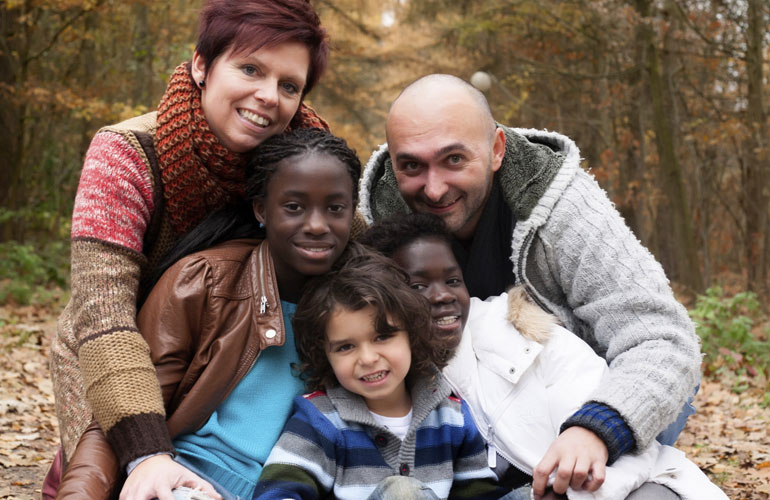Many parents notice that, after they adopt, they are more keenly aware of cultural and racial issues and conflicts. You may find yourself flinching when a joke ends with a racial punchline or stereotypes are casually discussed. News stories about Colombia, immigration, Central America, or the Hispanic community in the U.S. will take on a new significance. Suddenly, all of these things matter to you because of their connection with your son.
Don’t be surprised if friends and relatives do not immediately see things as you do. They may think you are oversensitive at times. They may even be critical or hurtful about your new perspective. Be patient with them and let them know you’re open to questions. Tell them about your journey, and recommend books to ease them into your new world.
You may find that your closest loved ones want to be included, but are afraid of “losing you” to this new life. Bring them along gently by keeping a positive attitude about this new dimension in your life — tell them that you are excited to include them in what you’re learning and doing. Over time, they should respond to the positive way in which you’ve presented things.
It is hard to find a balance — to blend your traditions with those of your child’s culture — but don’t let negative ideas or stereotyping by others shape your family. You are just beginning to experience what parents of color have known all their lives: the shock of prejudice, the sting of teasing, the discomfort of odd stares. But by blending your son’s identity into your own, your family will gain a new worldview, a rich cultural heritage, and an inner strength you may not know you had. Ultimately, your life will be more vibrant with new relationships and new connections you’ve helped create.
Diversify, Diversify
It will take work by you and your spouse to become an authentically multicultural unit. Do your family friendships, neighborhood, and church reflect only your own culture? If so, seek out places where a commitment to diversity is more evident. Find like-minded people with whom you can build supportive relationships. Many communities have adoption support groups that are either country-specific or diverse and inclusive for multicultural adoptive families. These groups can be great support for you and your child.
Are you knowledgeable about and interested in the traditions, celebrations, and concerns of your child’s culture? Most communities have a library or recreation center where you can learn about cultural experiences. And there is an endless list of resources online about the current issues in any ethnic community. Subscribe to magazines and newspapers that present a global or culturally specific point of view. Consider incorporating the food, art, and music of several cultures into your home and daily life.
Since you visited your son’s birth country when you adopted him, you experienced his culture firsthand. Draw on these connections and knowledge as the foundation for the journey ahead. They’ll help you create for your son a positive view of his homeland. If he sees that you respect and appreciate his heritage, he will learn to do likewise.
To experience what your son will face, put yourself in situations where you are the minority. Seek out cultural adventures that everyone in your family will enjoy. If you like eating out, find a good ethnic restaurant. If you like art, explore different museums. If you’re a movie buff, rent videos that offer you and your son insight into his — and your own — culture. While you’re exploring culture, don’t forget to embrace your ethnic heritage, as well.
As our world gets smaller, lead your children to be good global citizens. And don’t forget to have fun along the way!



